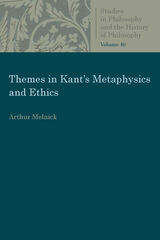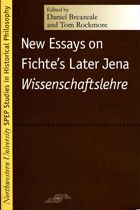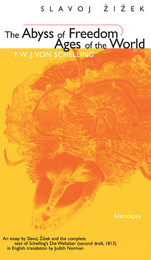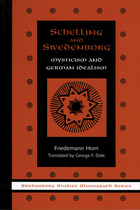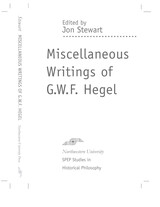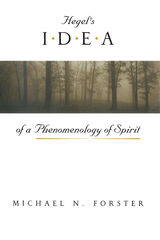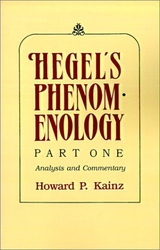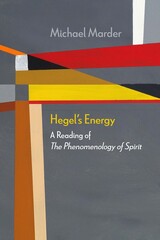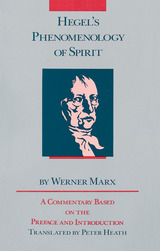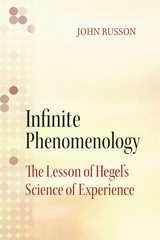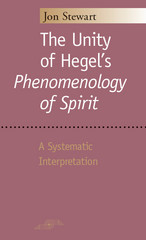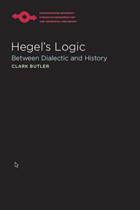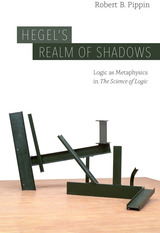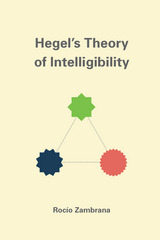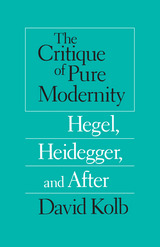Hegel's Phenomenology, Part 1: Analysis and Commentary
Ohio University Press, 1976
Paper: 978-0-8214-0890-2
Library of Congress Classification B2929.K28 1988
Dewey Decimal Classification 193
Paper: 978-0-8214-0890-2
Library of Congress Classification B2929.K28 1988
Dewey Decimal Classification 193
ABOUT THIS BOOK | AUTHOR BIOGRAPHY
ABOUT THIS BOOK
The publication in 1807 of Georg Wilhelm Frederich Hegel's Phanomenologie des Geistes (translated alternately as Phenomenology of the Mind or Phenomenology of the Spirit) marked the beginning of the modern era in philosophy. Hegel's remarkable insights formed the basis for what eventually became the Existentialist movement. Yet the Phenomenology remains one of the most difficult and forbidding works in the canon of philosophical literature. Hegel's Phenomenology, Part One: Analysis and Commentary by Howard P. Kainz is a coherent and readable key to understanding Hegel.
Kainz provides an accessible entry into the complexities of Hegelian thought by asking a series of questions about such matters as the literary form of the Phenomenology, its "plot," its relation to the "system," its subject matter, the problem of objectivity, dialectical necessity, the concept of "experience," and the Hegelian concept of consciousness. Building of the work of previous commentators, and presenting the work of these commentators in a clear and unbiased manner, Kainz offers an analysis that will be helpful both to experienced Hegelian scholars and to those readers preparing to approach the large and bewildering territory of the Phenomenology for the first time.
Kainz provides an accessible entry into the complexities of Hegelian thought by asking a series of questions about such matters as the literary form of the Phenomenology, its "plot," its relation to the "system," its subject matter, the problem of objectivity, dialectical necessity, the concept of "experience," and the Hegelian concept of consciousness. Building of the work of previous commentators, and presenting the work of these commentators in a clear and unbiased manner, Kainz offers an analysis that will be helpful both to experienced Hegelian scholars and to those readers preparing to approach the large and bewildering territory of the Phenomenology for the first time.
See other books on: 1770-1831 | Analysis | Commentary | Hegel, Georg Wilhelm Friedrich | Metaphysics
See other titles from Ohio University Press


